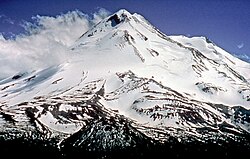This article needs additional citations for verification .(August 2021) |
| Yreka Western Railroad Company | |
|---|---|
| Yreka Railroad Company | |
 An ALCO MRS-1 at Yreka station. | |
| Terminus | Yreka California |
 | |
| Connections | Union Pacific Railroad in Montague CA |
| Commercial operations | |
| Original gauge | 4 ft 8+1⁄2 in (1,435 mm) standard gauge |
| Preserved operations | |
| Owned by | Railmark Holdings |
| Operated by | Railmark Holdings, Incorporated |
| Reporting mark | YW |
| Length | 8.86-mile (14.26 km) |
| Preserved gauge | 4 ft 8+1⁄2 in (1,435 mm) standard gauge |
| Commercial history | |
| Opened | 1889 |
| 1888 | Yreka Railroad Company Incorporated |
| 1889 | Rail Line Opened |
| 1933 | Re-Incorporated as Yreka Western Railroad Company |
| 1953 | Kyle Railways |
| Preservation history | |
| 1986 | Blue Goose Excursion Train Begins |
| 1999 | Sold to Rocky Mountain Railway and Mining Museum |
| 2016 | Ceased tourist operations |
| 2017 | Sold to Railmark Holdings |
| Headquarters | Yreka, California |
| Website | |
| www | |
The Yreka Western Railroad Company( reporting mark YW) is a shortline railroad that operates freight trains and formerly passenger excursions between the Central Oregon & Pacific interchange at Montague and the city of Yreka, California. [1] Railmark Holdings acquired the Yreka Western Railroad in 2017. [2]






